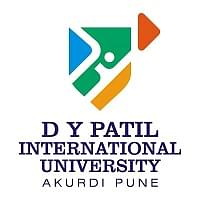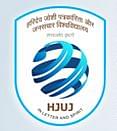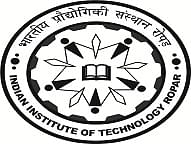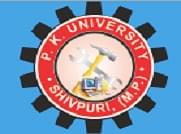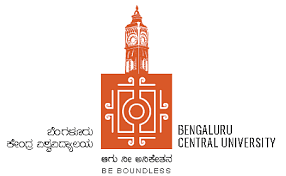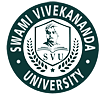Introduction:
The Diploma in Medical
Laboratory Technology (DMLT) program at Top universities in Maharashtra is
designed to equip students with the necessary skills and knowledge to work as
laboratory technicians in healthcare settings. Medical laboratory technicians
play a crucial role in the diagnosis, treatment, and prevention of diseases by
performing various laboratory tests and analyses. This comprehensive program
covers theoretical knowledge, practical skills, and hands-on training to
prepare students for a rewarding career in the field of medical laboratory
science.
Admission
Process:
1. Eligibility Criteria:
·
Candidates must have
completed their high school education (10+2) or equivalent from a recognized
board.
·
While a science
background is preferred, it may not always be mandatory. However, some
universities may require candidates to have studied subjects like Physics,
Chemistry, and Biology.
·
Minimum percentage
requirements may apply, typically ranging from 45% to 60%.
2. Entrance Exams:
·
Admission to the DMLT
program may be based on performance in entrance exams conducted by the
university or state-level entrance exams.
·
Entrance exams assess
candidates' proficiency in subjects such as Physics, Chemistry, Biology, and
English.
3. Counseling and Selection Process:
·
Shortlisted candidates
may be called for counseling sessions, during which they can choose their
preferred specialization within the DMLT program.
·
Final selection is
typically based on a combination of academic performance, entrance exam scores,
and performance in counseling sessions.
Eligibility:
1. Educational Qualifications:
·
Completion of high
school education (10+2) or equivalent from a recognized board.
·
While a science
background is preferred, candidates from other streams may also be eligible for
admission.
·
Minimum percentage
requirements may vary depending on the university and program.
2. Basic Computer Skills:
·
Proficiency in basic
computer skills may be required for data entry, report generation, and use of
laboratory information systems (LIS).
Career Opportunities:
1. Medical Laboratory Technician:
·
Graduates of the DMLT
program can work as medical laboratory technicians in hospitals, clinics,
diagnostic centers, and research laboratories.
·
They perform various
laboratory tests such as blood tests, urine analysis, microbiological cultures,
and histopathological examinations under the supervision of pathologists and
laboratory managers.
2. Specialized Laboratory Technicians:
·
Technicians can
specialize in specific areas of laboratory science such as clinical chemistry,
hematology, microbiology, immunology, and histopathology.
·
Specialization allows
technicians to focus on particular types of tests and procedures, becoming
experts in their chosen field.
3. Research Assistants:
·
Graduates may work as
research assistants in academic institutions, pharmaceutical companies, or
research laboratories.
·
They assist scientists
and researchers in conducting experiments, collecting data, and analyzing
results for medical research studies.
4. Quality Control Technicians:
·
Technicians can also
pursue careers in quality control and assurance in laboratories, ensuring that
laboratory procedures and tests meet regulatory standards and quality
benchmarks.
·
They perform quality
checks, maintain documentation, and implement corrective actions to ensure the
accuracy and reliability of test results.
Registration Process:
1. Application Form Download:
·
Obtain the application
form for the DMLT program from the university's official website or admissions
office.
2. Form Submission:
·
Fill out the
application form accurately and completely with all required details.
·
Ensure that all
necessary documents, such as educational certificates, identification proof,
and passport-sized photographs, are attached with the application form.
3. Application Fee Payment:
·
Pay the application
fee as specified by the best university in Maharashtra through the
designated payment mode.
·
Keep the payment
receipt as proof of fee payment.
4. Submission of Application:
·
Submit the completed
application form along with the required documents and fee payment receipt to
the university's admissions office before the deadline.
5. Admission Process:
·
After the submission
of applications, the university will review the applications and shortlist
candidates based on eligibility criteria.
·
Shortlisted candidates
may be called for entrance exams, interviews, or counseling sessions.
6. Counseling and Seat Allocation:
·
Candidates who qualify
the entrance exams or interviews will be invited for counseling sessions.
·
During counseling,
candidates can choose their preferred specialization and complete the admission
formalities.
7. Document Verification:
·
Shortlisted candidates
will be required to submit original documents for verification during the
counseling process.
·
Once documents are
verified, candidates will be issued provisional admission letters.
8. Fee Payment and Enrollment:
·
Pay the tuition fees
and other applicable fees as per the university's fee structure.
·
Complete the
enrollment process by submitting the required documents and undertaking the necessary
formalities.
9. Orientation Program:
·
Attend the orientation
program organized by the university to familiarize yourself with the DMLT
program, curriculum, and campus facilities.
10. Commencement of Classes:
·
Start attending
classes as per the schedule provided by the university and embark on your
journey towards becoming a skilled medical laboratory technician.
Fee Structure:
The
fee structure for the DMLT program at affordable universities in Maharashtra may
vary depending on factors such as the university's reputation, infrastructure,
and facilities provided. Here's a general overview:
·
Tuition Fees:
·
The
tuition fees for the entire duration of the program typically range from INR
XXXXX to INR XXXXX.
·
This
fee covers the cost of academic instruction, laboratory facilities, practical
training, and other educational resources.
·
Additional Fees:
·
Additional
charges may include registration fees, examination fees, laboratory fees, and
study materials.
·
Clinical
internship fees, if applicable, may also be included in the overall fee
structure.
·
Financial Assistance:
·
Universities
may offer scholarships, grants, or financial aid to eligible students based on
merit, financial need, or other criteria.
·
Students
are encouraged to explore available options for financial assistance to support
their education.
The
Diploma in Medical Laboratory Technology (DMLT) program at universities in Maharashtra provides students with a solid
foundation in laboratory science and prepares them for diverse career
opportunities in healthcare and research. The admission process ensures the
selection of candidates with the necessary educational background and aptitude
for laboratory work. The program curriculum covers theoretical knowledge,
practical skills, and hands-on training, enabling graduates to excel as
competent and compassionate laboratory technicians. Aspiring laboratory
professionals in Maharashtra can pursue this program to embark on a fulfilling
career path in medical diagnostics, research, and healthcare delivery.
Syllabus:
1. Introduction to Medical Laboratory Science:
·
Overview of medical
laboratory technology and its importance in healthcare.
·
Role of medical
laboratory technicians in diagnosis, treatment, and prevention of diseases.
2. Anatomy and Physiology:
·
Study of human anatomy
and physiology with a focus on organs and systems relevant to medical
laboratory testing.
·
Understanding the
structure and function of the cardiovascular, respiratory, urinary, and
digestive systems.
3. Laboratory Techniques and Instrumentation:
·
Introduction to basic
laboratory techniques such as specimen collection, handling, and processing.
·
Operation and
maintenance of laboratory equipment and instruments including microscopes,
centrifuges, and analyzers.
4. Clinical Pathology:
·
Study of pathological
conditions and diseases based on laboratory tests.
·
Interpretation of
laboratory results for hematological, biochemical, and immunological
parameters.
5. Clinical Microbiology:
·
Identification and
characterization of microorganisms causing infectious diseases.
·
Techniques for
culturing, staining, and biochemical testing of bacteria, viruses, fungi, and
parasites.
6. Clinical Biochemistry:
·
Analysis of
biochemical parameters in blood and body fluids to assess organ function and metabolic
status.
·
Principles and methods
of biochemical tests including blood glucose, liver function tests, renal
function tests, and lipid profile.
7. Hematology and Blood Banking:
·
Examination of blood
components and cellular elements for hematological disorders.
·
Blood typing,
cross-matching, and compatibility testing for blood transfusions.
8. Histopathology and Cytology:
·
Study of tissue
samples and cellular specimens for diagnosing cancer and other pathological
conditions.
·
Preparation of tissue
sections, staining techniques, and microscopic examination.
9. Quality Assurance and Laboratory Management:
·
Principles of quality
control and quality assurance in laboratory testing.
·
Laboratory safety
measures, waste disposal, and infection control protocols.
10. Clinical Training and Internship:
·
Hands-on training in
laboratory techniques and procedures under the supervision of experienced
laboratory professionals.
·
Clinical rotations in
various departments including clinical pathology, microbiology, biochemistry,
hematology, and histopathology.
The Diploma in Medical Laboratory Technology (DMLT) program
at affordable universities in
Maharashtra offers a comprehensive curriculum covering various aspects of
medical laboratory science. The registration process is straightforward and
involves filling out the application form, submitting required documents, and
completing admission formalities. Upon admission, students undergo rigorous
training in laboratory techniques and procedures, gaining hands-on experience
through clinical rotations and internships. Graduates of the program are
well-equipped to pursue rewarding careers as medical laboratory technicians in
hospitals, clinics, diagnostic centers, and research laboratories, contributing
to the field of healthcare with their expertise in laboratory diagnostics and
testing.






